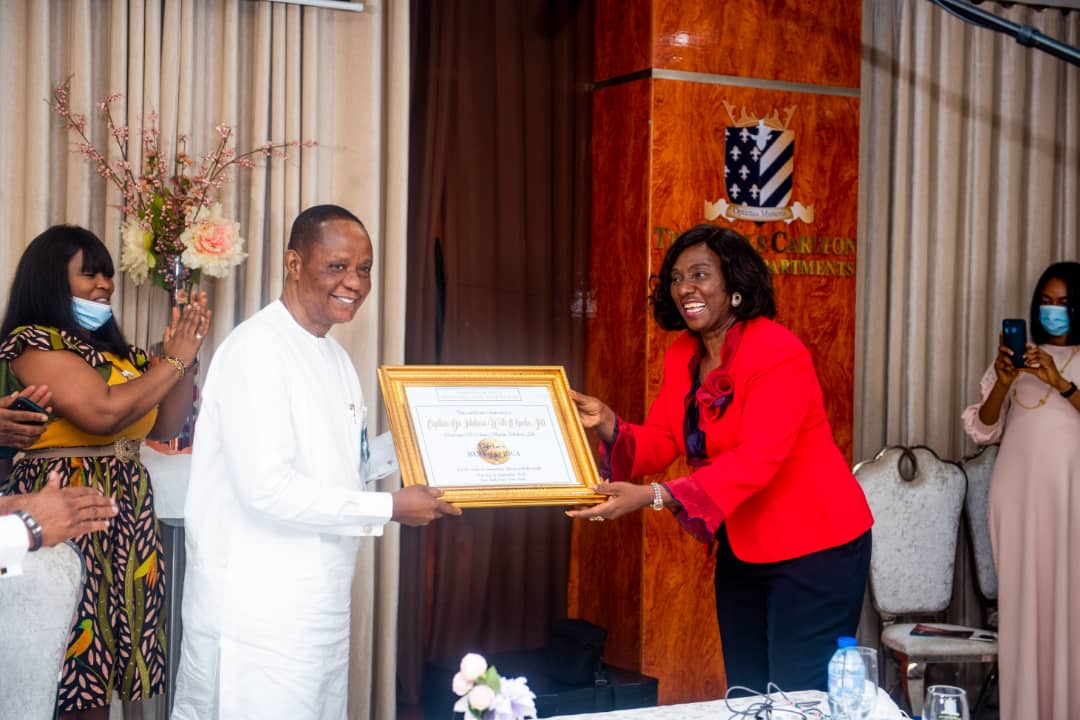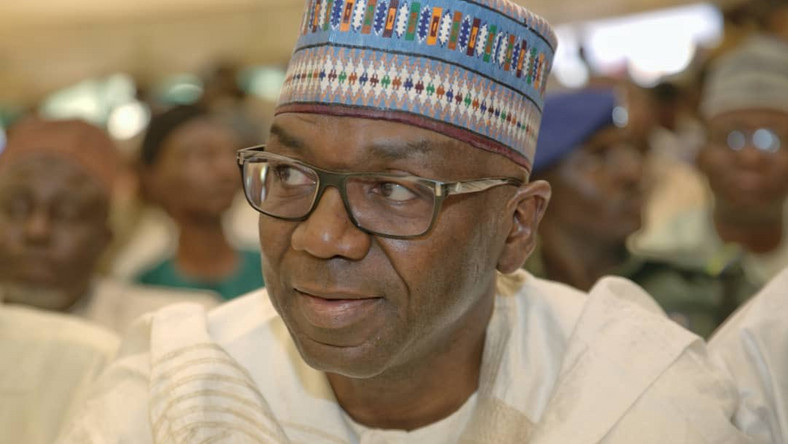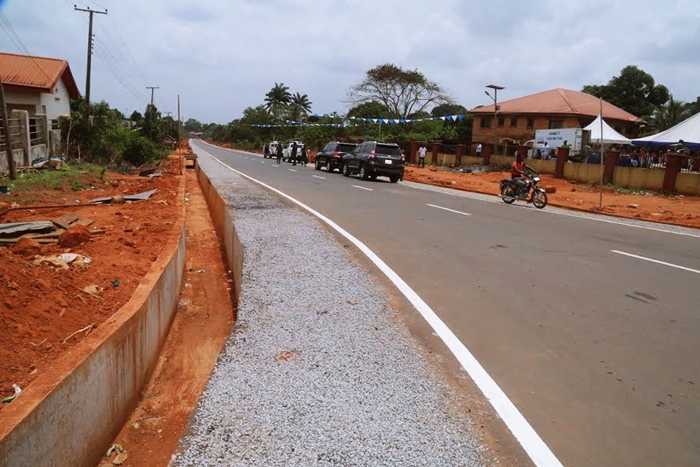BY ABUBAKAR JIMOH
Blessed with abundant human and natural resources, Africa is often referred to as the poverty centre of the world or resource cursed continent.
Africa has so far witnessed serious intrinsic setbacks in her socio-economic activities. This from an in-depth observation, is not unconnected to the inept capacity to productively transform her natural resources and lucratively mobilise human equivalent to safe the sinking continent from self-inflicted poverty and socio-economic deprivation to a more progressive, prosperous and all-embraced one.
This socio-economic deprivation is triggered rather not by colonial ideology or imperial policy but normalised obsolete thinking, lackadaisical attitudes and ill-informed orientation at both citizenry and leadership levels, anchored on over-relied religious activities at the expense of rigorous innovation, advancement and productivity among other features that currently determine global position of a country or continent.
Advertisement
Without doubt, ethno-religious sentiment largely constitutes a predominant consideration backpedalling election, appointment and selection of competence into relevant political institutions in most African countries. This on the other hand affects citizens’ choices and renders them helpless from making well-informed decisions or constructively demanding accountability in governance.
It is worrisome that this negligence impedes fairness and credibility in most African electoral processes, which resultantly inhibits effective performance of political institutions and success of economic ones.
The recent report by London College of International Business Studies showing progressive movement in educational attainment and desire for advanced learning across the continent, is a clear indication that African has evolved from illiteracy to a more literate continent with required efficiency for independent transformation.
Advertisement
However, the gap widens between education attainment and innovative thinking as well as radical transformation of knowledge to constructively reverse the ailing socio-economic indices. This gap is enabled by outmoded ideology and misplaced priority contaminating appropriate thoughts and actions at all levels.
A report by This Is Africa (TIA), a leading pan-African digital media platform, narrates a good number of churches and mosques flooding every street in Africa, while access to basic amenities like good roads, Primary Health Care remains a major challenge to those who attend the religious institutions. As industrial rates and quality healthcare system decline, religion according to TIA, is the new way to gain quick wealth, and health of many Africans is dependent on miraculous healings.
Although industrialization hitherto constitutes a campaign promise across African continent, with its acknowledged ability to bring prosperity, new jobs and better incomes for all, yet the continent is currently less industrialized than it was four decades ago, as reported by Africa Renewal. The contribution of Africa’s manufacturing sector to the continent’s gross domestic product actually declined from 12% in 1980 to 11% in 2013, where it has remained stagnant over the past few years, according to the UN Economic Commission for Africa (ECA).
Similarly, the Economist Intelligence Unit, a British business research group, confirms that Africa accounted for more than 3% of global manufacturing output in the 1970s, but this proportion has diminished. It warns that Africa’s manufacturing industry is likely to remain small throughout the remainder of this decade.
Advertisement
Another corroborated report by Harvard Business Review recounts many investors and business leaders’ curiosity over down-slopping growth in Africa, the trend is attributed to lower resource prices and higher level of socio-political instability that have taken toll on the continent.
It becomes imperative at this juncture to mention a few prosperous nations that place drastic emphasis on holistic chase of discovery, innovation and productivity through appropriate internal measures and transformative strategies as a bargain power in diplomatic negotiation, while dominating global economic and political spaces.
In pursuance of a peaceful and secured environment for technological innovation and socio-economic advancement, Dubai has secured herself a space in global tourist attraction with projected 25million visitors boosting private consumptions and service exports in 2018, according to the World Bank. The Emirate has maintained steady GDP growth, while expanding diplomatic influence and peaceful co-existence among global powers. It is worthy of a note that religion plays a positive role in maintaining peace and order for sustained economic growth and development of the tourism sector and technological advancement in the Emirate. With increasing priority for economic growth and human capital development, Dubai leaves space for religious freedom.
With very much resistance to any true religious influence, China adopted political ideology as religion; and after the death of then-President Mao Zedong, favoured a more regulatory approach and harnessed aspects of religion that could serve the regime’s political and economic interests. The country witnessed no significant growth and development until opening up to foreign trade and investment combined with free-market reforms in 1979.
Advertisement
China has been among the world’s fastest-growing economies, with real annual GDP growth averaging 9.5% in 2018, as reported by the Federation of American Scientists. The Chinese government has made innovation a top priority in its economic planning through a number of high-profile initiatives, such as “Made in China 2025,” a plan announced in 2015 to make China a major global player in key sectors.
Despite its lack of natural resources and raw materials, Israel has leveraged its highly qualified labour force, scientific institutes, and Research and Development centers to boost home-grown manufacturing products with high added value. These are developed based on Israel’s own scientific creativity and technological innovation. Unlike most developed economies, the number of persons employed in industry remained stable and continues to grow, with more than 25 percent of the industrial workforce employed in hi-tech manufacturing, as reported by Israel Ministry of Foreign Affairs.
Advertisement
While a study published in 1988 by Cambridge University Press observes that laws of ancient Israel found in the Old Testament significantly restricted economic transactions and limited the possibility of economic growth, a recent report by The Jerusalem Post recalls substantial respect accorded economic liberty and commerce among Jews, who acknowledge the Book of Genesis, which stresses that humans are not meant to be passive, instead they are commanded to work and be creative.
Japan emerged from severe destruction and devastating impact of World War II to become the world’s third largest industrial economy in less than twenty-five years. Available studies attribute not holiness in religion as the genesis of such great transformation but doubled and targeted efforts in productive industrial capital stock—“a feat never before accomplished by an industrial country”, according to Brooking Institutions. Also, in the realm of international trade, Japan moved from being mainly a provider of labour-intensive to being the world’s leading exporter of capital intensive products like consumer electronics, steels, ships, automobiles and optical goods. The country remains a highly developed free-market and world’s second largest developed economy, as reported by Organisation for Economic Cooperation and Development (OECD).
Advertisement
Though there is sufficient evidence that religious practices have been positive to economic growth and orderly development of many societies, however, religious in this context fundamentally shapes leadership ideology and citizens’ morals and better conducts for greater accountability, discipline and decency. Africa’s over-reliance on religious activities to address socio-economic challenges instead of marketable creativity and innovation, holistic political philosophy, genuine socio-economic transformational policy, win-win diplomatic ideology, has soaked most countries on the continent into decades of poverty, social deprivation, ethno-religious crisis, pervasive corruption and grossly global parasite.
Abubakar Jimoh is a development communications specialist. He writes from Abuja.
Advertisement
Views expressed by contributors are strictly personal and not of TheCable.
Add a comment






